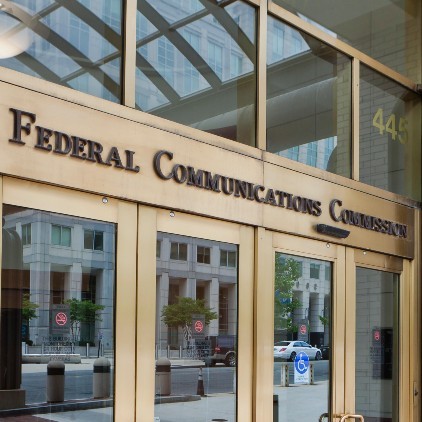FCC proposes $2.3M fine for LTD's defaulted RDOF bids
The FCC proposed over $4 million in fines against defaulted RDOF applicants, with $2.3 million of those fines for the auction's largest bidder, LTD Broadband.

The FCC has proposed over $4 million in fines against applicants in the Rural Digital Opportunity Fund auction (RDOF) for defaulting on their bids, with $2.3 million of those fines being levied against LTD Broadband.
As per a public notice issued on Friday, the FCC said it was proposing $4,353,773.87 in fines against 73 RDOF applicants "for apparently violating Commission requirements by defaulting on their bids between July 26, 2021 and March 10, 2022."
Figure 1:  (Source: B Christopher/Alamy Stock Photo)
(Source: B Christopher/Alamy Stock Photo)
"The applicants defaulted on their respective bids by withdrawing applications in certain areas, or failing to meet deadlines and requirements required in the auction rules after having already placed winning bids in Auction 904," said the FCC in a press release.
The Commission further clarified that it is not proposing action against bidders who defaulted in response to FCC letters "identifying census blocks that may have been already served or raised significant concerns about wasteful spending."
According to the public notice, the defaulted applicants for which the FCC is proposing fines "prevented 1,702 census block groups with 129,909 estimated locations in 36 states from seeing timely new investments in broadband infrastructure."
LTD Broadband, which has been targeted for roughly half of the proposed fines, was originally awarded $1.32 billion in the $9.2 billion auction to expand broadband across 15 states. But the company has since had its eligible telecommunications carrier (ETC) status challenged in several of those states, the latest being Minnesota.
Related: LTD Broadband may lose RDOF funding in Minnesota
In its explanation of its action against LTD, the FCC wrote: "The Commission finds that LTD Broadband apparently committed violations by defaulting on 768 CBGs subject to forfeiture, which places the company's base forfeiture at $2,304,000.00."
Beyond LTD, the FCC also proposed $833,000 in fines against Time Warner Cable Information Services (a subsidiary of Charter) for defaulted bids in ten states.
It further issued a series of fines against the Rural Electric Cooperative Consortium (RECC), a group of electric co-ops that the consulting firm Conexon is working with on fiber network builds.
Of the roughly $200,000 in fines proposed for RECC bidders, Conexon Connect – the ISP arm of Conexon that was assigned bids covering 1,156 census block groups under RECC – is responsible for $40,000.
In addition to Conexon Connect, the defaulted bidders under RECC include Consolidated Fiber (Ohio), Cooperative Connect (Ohio), Edisto Electric Cooperative (South Carolina), Guernsey-Muskingum Electric Cooperative (Ohio), Licking Rural Electrification (Ohio), Lynches River Communications (South Carolina), Pierce Pepin Cooperative Services (Wisconsin), Palmetto Link (South Carolina), Steuben County Rural Electric Membership (Indiana), Shelby Fiber (Illinois), South Central Power (Ohio), Tennessee Valley Electric Cooperative and Yazoo Valley Electric Power Association (Mississippi).
Related: Conexon Connect gets $435M in latest RDOF round to serve fiber through rural co-ops
The Commission noted that the proposed fines are not the final action here, as bidders will first be given an opportunity to respond to the FCC's allegations.
In a corresponding statement, FCC Commissioner Geoffrey Starks said he supported the FCC's decision to propose fines against the 73 defaulted bidders and noted his previously stated concerns with the Commission's reverse auction.
"I was worried that there were 'warning signs that we should not ignore' regarding our track record of winners in CAF II defaulting and missing milestones," said Starks.
"I fervently hope that these service areas, and the households in these communities, get connected through the other currently available broadband deployment programs, including the Broadband Equity Access and Deployment (BEAD) program," he added.
Related posts:
— Nicole Ferraro, editor, Light Reading, and host of "The Divide" podcast.
About the Author(s)
You May Also Like












